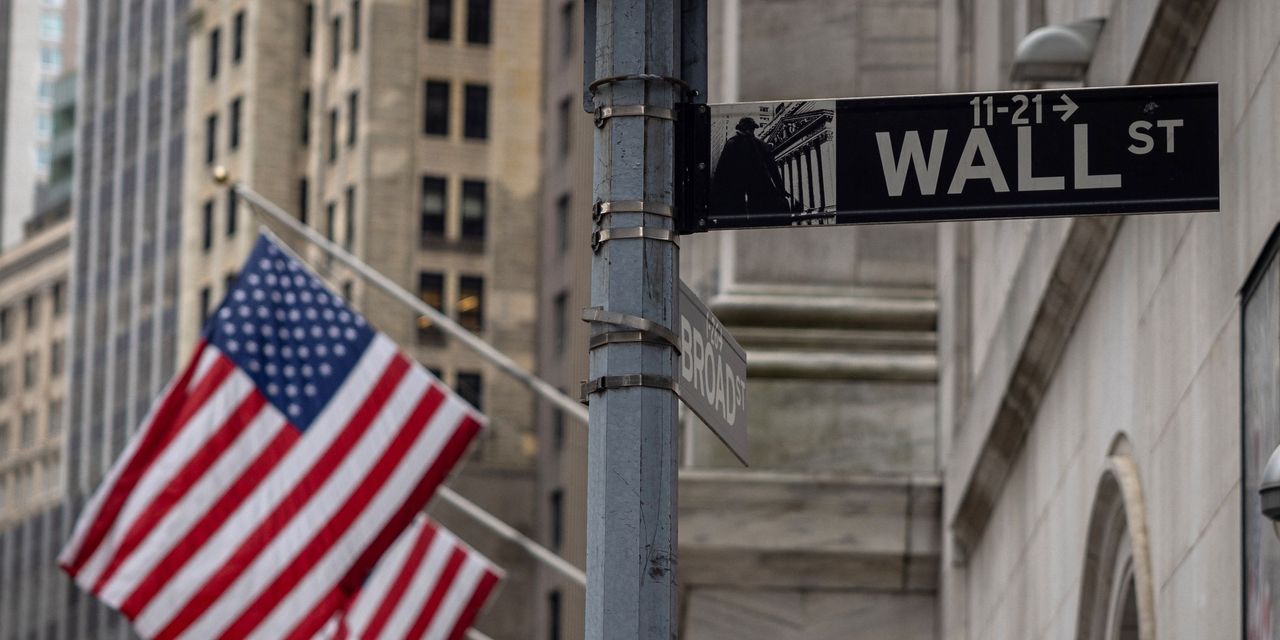If you think you or anyone running a mutual fund or hedge fund have what it takes to consistently pick stocks or bonds that outperform the overall market, think again. The data prove you wrong, and Charley Ellis explains why.
Ellis, renowned financial author, professor, and a former chair of the Yale University endowment, recently explained his reasoning in an interview with public television’s Consuelo Mack for her “WealthTrack” show. He also has a new book, Figuring It Out, a retrospective of his best financial thinking over six decades. (Ellis is also a member of the investment committee for my firm.)
In a time of tumultuous markets, inflation, and economic uncertainty, it can feel like someone, somewhere must have an inside track on what will happen next.
Read MarketWatch’s market snapshot
Every year, too, it seems that one pundit or another predicts that stock picking (also called “active management”) is finally poised to win against just investing in indexes such as the S&P 500
SPX,
Nevertheless, Ellis notes, year after year picking stocks fails to work out. Only about 15% of active managers manage to exceed the returns of their index benchmarks. Which 15% will “win” in any given period is nearly impossible to guess in advance.
Read: Is this the worst bear market ever?
“We’ve studied and studied and studied ways of trying to figure out who they will be. All we know is, it is a random characteristic that every once in a while, somebody shows up in that top 15%, and nobody stays there,” Ellis said.
Worse, even if you do manage to own that winning fund, its supposed edge will be negligible compared to owning the index. “In many cases, they have really terrible results at some point, but the 15% that do better, how much better do they do?,” he said.
“Not much better. Just a little bit better.”
For the other 85% of funds, the costs, fees, and taxes of active investing overwhelm any temporary advantage they might find, putting stock picking funds behind the indexes year after year.
Actively managed funds can cost eight to 10 times more than index funds. And active managers are, well, active. They buy and sell, generating taxable gains which lower your overall return.
Why can’t stock pickers consistently win? Chalk it up to massive increases in market efficiency, Ellis said.
The sheer volume of trading in global stock markets today assures a radical level of efficiency. The volume of the New York Stock Exchange has gone from 3 million shares daily in the early 1960s to 8 billion shares traded today, Ellis told Mack.
Meanwhile, who is trading also has changed, going from mostly individual amateurs with limited information to legions of highly compensated professionals with access to extensive research and data flows measured in milliseconds.
At the start of Ellis’s career, perhaps 5,000 people were in the business of actively managing investments. Today it’s likely closer to 1 million world-wide, Ellis estimated.
“We’ve all known for years and years and years that in any market, if there’re only a few players, it’s a very inefficient market. If you’re a pretty good player, you can take advantage of that inefficiency,” Ellis said.
“As more and more players participate, it becomes more and more likely to be efficient. And as it becomes more and more efficient, it’s harder and harder to do better than just settling for the average or the index.”
Moreover, the stock market is now connected to the debt market, which is connected with the oil market, which is connected with every commodity market around the country. And all of them are connected to all the different currency markets. “So there’s an unbelievable, phenomenal change in the way in which prices are being set by the participants in the market,” he said.
What is an intelligent investor to do? Stop paying attention to stocks, Ellis contends.
Focus instead on choosing which indexes to use and on building a prudent, goal-oriented portfolio that manages risk. These are all active decisions, Ellis argues.
“One of the benefits of indexing is that you start to say, you know, I really don’t know what’s happening and I don’t care,” he said. “I really don’t get concerned about the price. I haven’t checked the price of an index fund day today, which I used to do all the time with individual stocks.”
In the end, however, portfolio index investing is not simply “passive,” Ellis contends. Rather, it’s a deliberate decision to look at the facts as the facts really are, he says, and to act rationally.
“As [John Maynard] Keynes said, when the facts changed, I changed my mind,” he said. “And I think the facts have changed, and changed, and changed.”
